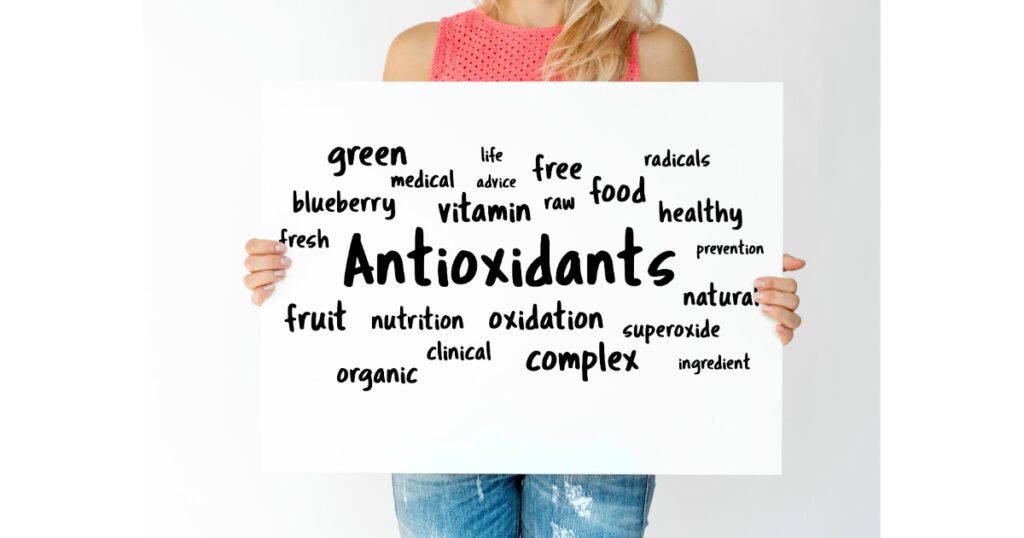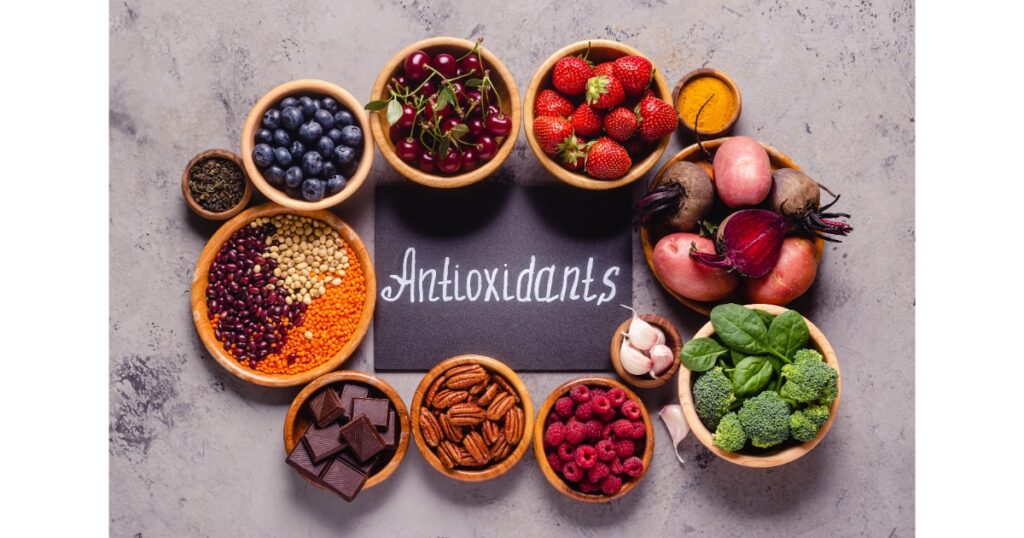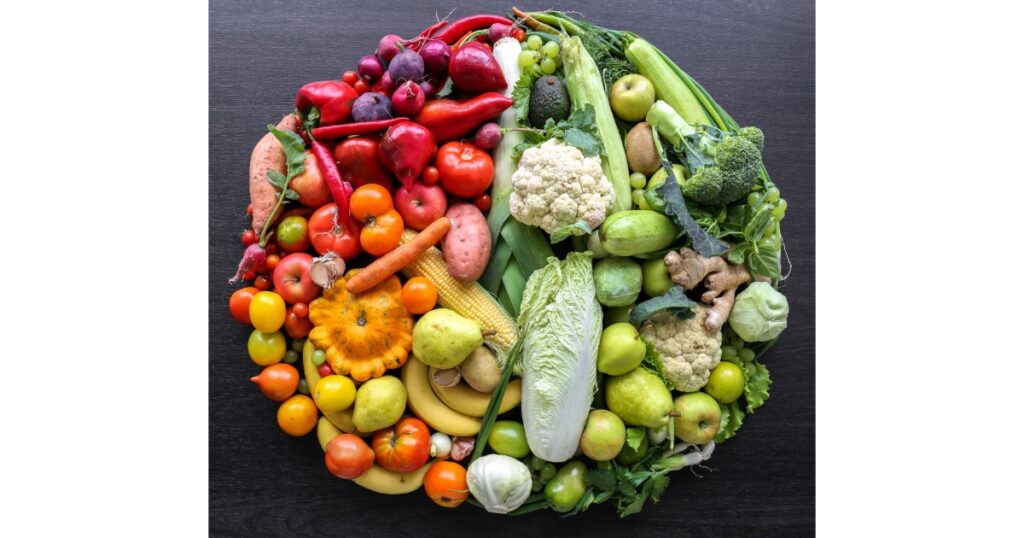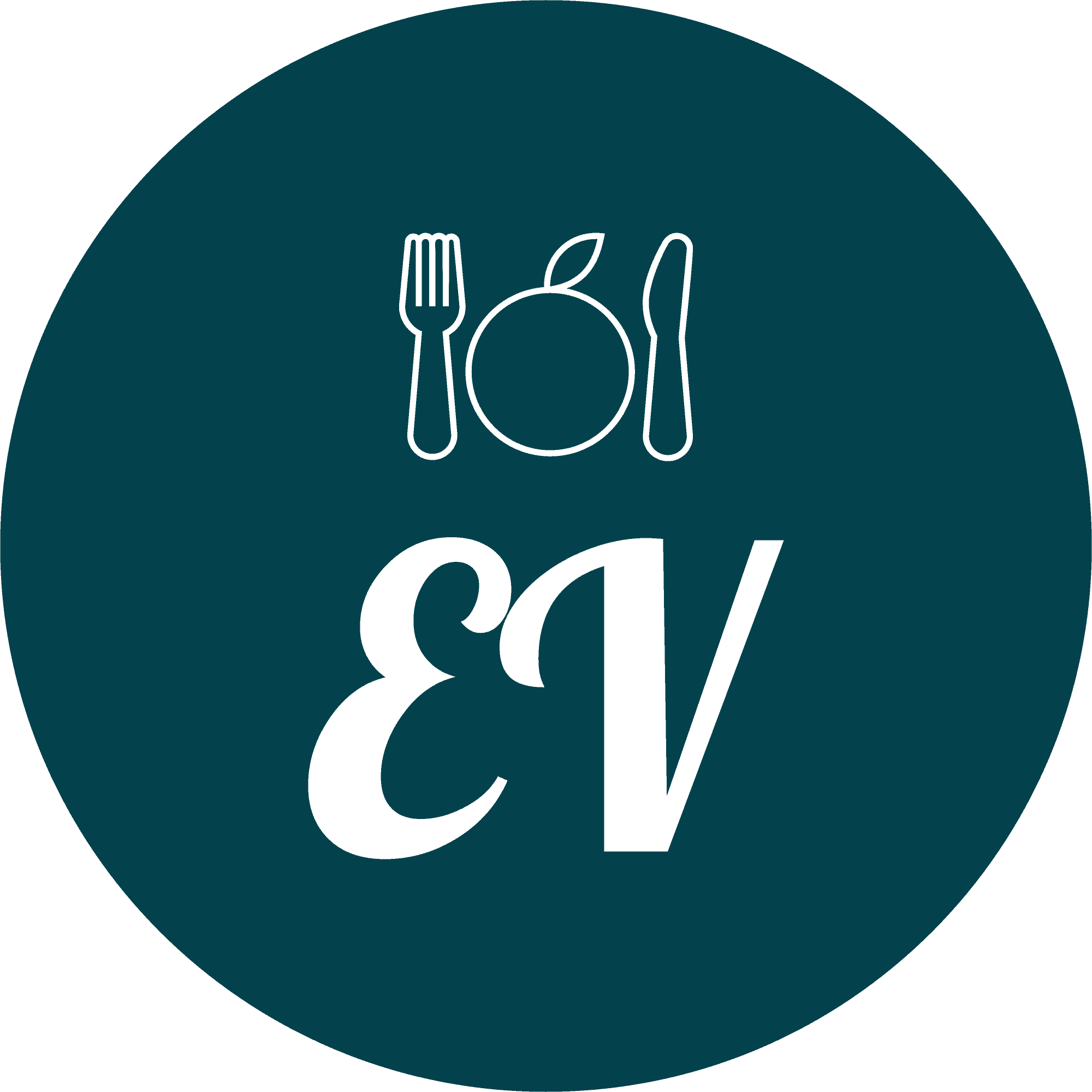In the fast-paced journey of life, health often takes a back seat. Yet, in this continuous struggle to maintain well-being, one element stands out as a silent hero – antioxidants.
Ever wondered how certain fruits, vegetables, and even dark chocolate become health-boosting superfoods?
The answer is antioxidants.
Did you know that your body is constantly attacked by harmful molecules called free radicals? These unstable molecules can wreak havoc on your health, leading to inflammation, premature ageing, and even chronic diseases.
But fear not!
Antioxidants play a pivotal role in safeguarding your body against the unseen threats of oxidative stress. From bolstering your immune system to enhancing skin radiance, the benefits of antioxidants are diverse.
This article is not just a source of information; it will give you a complete guide to incorporating antioxidants seamlessly into your daily routine.
Let’s get started!
Table of Contents
What are Antioxidants?
Antioxidants are powerhouse compounds that tirelessly defend our cells from the destructive influence of free radicals. The primary role is to neutralize these radicals, preventing cellular damage.
A simple antioxidant definition can be a protective shield that actively combats oxidative stress, contributing to the overall well-being and vitality of our biological system.
Causes of Oxidative Stress
Here are a few factors that may increase oxidative stress in the body and influence free radical production.
- Environmental pollutants
- Unhealthy diet
- Lack of antioxidant-rich foods in the diet
- Excess intake of sugary foods and beverages
- Chronic inflammation
- Cigarette smoking and Tobacco
- UV Rays
- Stress
- Exposure to radiation
- Excessive exercise
- Alcohol intake
- Exposure to toxins, chemicals, industrial solvents, and pesticides

Types of Antioxidants
Antioxidants are of various types, each with distinct characteristics and roles in our body.
Enzymatic Antioxidants
These are proteins with the innate ability to neutralize free radicals for example catalase and glutathione peroxidase.
Enzymatic antioxidants act as biological defenders, scavenging harmful molecules and maintaining cellular balance.
Non-Enzymatic Antioxidants
They are not proteins but rather encompass a broad range of compounds, including vitamins, minerals, and phytochemicals.
Non-enzymatic antioxidants work synergistically to combat oxidative stress and provide robust protection against free radicals.
Examples include melatonin and glutathione.
Vitamins
Vitamins A, C and E are antioxidant vitamins. They help protect cell membranes against oxidative stress, support eye health, and boost your immune system.
Vitamin C is considered one of the best antioxidants for skin. It is known to play a crucial role in supporting your immune system and promoting collagen production.
They can be found in foods like amla, guava, berries, cantaloupe, spinach, kale and many more.
Minerals
Selenium and zinc are the minerals that act as trace elements with mighty antioxidant impact. Selenium becomes a crucial component of antioxidant enzymes, and zinc contributes to the defence against oxidative stress, highlighting their indispensable roles in maintaining cellular resilience.
They can be found in Brazil nuts, almonds, sunflower seeds and pumpkin seeds.
Polyphenols
Polyphenols, abundant in various plant sources, exhibit distinct identities and antioxidant properties. From resveratrol in grapes, renowned for cardiovascular health, to quercetin in onions with anti-inflammatory benefits, and curcumin in turmeric offering diverse health support, polyphenols bring superb protective qualities to the table.
Flavonoids
Flavonoids are a diverse group of antioxidants found in plant-based foods such as berries, tea, cocoa, and red wine. These compounds have anti-inflammatory and antimicrobial properties, protect against heart disease, and may even help improve cognitive function.

Antioxidants Benefits
This section will tell you the reasons why your diet should be antioxidant-rich. Let’s talk about the impressive health benefits of antioxidants, backed by references to reputable studies.
1. Protect Against Oxidative Stress
The primary antioxidant function is to act as a safeguard against free radicals. Oxidative stress is a result of an imbalance between free radicals and antioxidants in our body. By neutralizing free radicals, antioxidants help restore this balance, reducing the risk of chronic diseases such as cancer, diabetes, and heart disease.1
2. Delay Ageing and Promote Youthful Skin
Who doesn’t aspire to have radiant and beautiful skin?
In the pursuit of a glowing complexion, antioxidants play a pivotal role.
Free radicals can accelerate the ageing process, leading to wrinkles, fine lines, and sagging skin. Antioxidants, particularly vitamins C and E, combat this damage, helping to preserve a youthful appearance and promoting collagen synthesis for healthy skin.
Antioxidants are being extensively used in dermatology.
A study found that lutein carotenoid – a potent antioxidant is associated with reducing oxidative damage from sunlight blue light2. This makes it beneficial in the treatment of macular degeneration.
Antioxidants like vitamin C have also been shown effective in treating melasma. It reduces dopaquinone (DOPA), preventing the formation of free radicals.3
For those seeking a vibrant and youthful appearance, make antioxidants as an essential element in your skincare regimen.
3. Boost Immune Function
Regular consumption of antioxidants strengthens the immune system, aiding in the body’s defence against infections.
A robust immune system is essential to defend against infections and diseases.
Antioxidants, namely vitamin C, zinc, selenium, copper and beta-carotene, support the immune system by strengthening the function of white blood cells and promoting the production of antibodies, keeping you healthy and resilient.
Dietary antioxidants exert a protective effect on our body against bacteria and viruses. They strengthen the functioning and regulate the actions of immune cells.4
4. Enhance Heart Health
Antioxidants, specifically flavonoids, have been extensively studied for their potential to protect against heart disease. They help reduce inflammation, lower blood pressure, improve circulation, and prevent the oxidation of cholesterol, thus reducing the risk of cardiovascular problems.
Multiple studies have found a significant correlation between increased antioxidant intake and a reduced risk of cardiovascular diseases.
Oxidative stress promotes atherosclerosis and increases the risk of coronary artery disease. Natural antioxidants like vitamins A, C and E and glutathione reduce plaque formation in the arteries and mitigate inflammation.5
Chronic inflammation is one of the causative factors of heart disease. Patients suffering from inflammatory diseases often show diminished levels of antioxidants due to insufficient dietary intake.
Researchers suggest an intake of natural antioxidants as an effective strategy in fighting inflammation and endothelial disruption.
Another study conducted on 2252 men and 2849 women observed that people who consumed a diet rich in fruits and vegetables were less prone to cardiovascular disorders.6
5. Support Brain Health
Your brain is susceptible to oxidative damage due to its high metabolic activity.
Antioxidants, such as flavonoids, have demonstrated neuroprotective effects, improving cognitive function and reducing the risk of neurodegenerative diseases like Alzheimer’s and Parkinson’s.
Our brain cells have a high rate of oxidative metabolic activity. Antioxidants like superoxide dismutase and glutathione peroxidase not only protect the brain tissue from oxidative damage but also repair the damaged cells.
They ensure the smooth functioning of signalling pathways and minimize the effect of substances that stimulate oxidative radicals and the risk of neurodegenerative diseases.7
Conzyme Q10, zinc, selenium, vitamins E and A are critical antioxidants for our brain.
6. Mitigate Diabetes Risk
With diabetes on the rise globally, affecting millions, maintaining a healthy diet is pivotal in managing and preventing this widespread condition. Unhealthy dietary habits, often linked to processed foods and excessive sugar intake, contribute significantly to the increasing prevalence of diabetes.
Certain antioxidants, like those found in cinnamon and green tea, may help mitigate the risk of diabetes.
Obesity, sedentary lifestyle and lack of physical activity are the common causes of diabetes. However, excess free-floating radicals and oxidative stress in the body can also increase the incidence of diabetes.
Antioxidants such as N-acetylcysteine, vitamin C and alpha-lipoic acid are considered effective in reducing diabetic complications.
A study found that the oral administration of lipoic acid significantly improved insulin sensitivity among people with type 2 diabetes.8
Hence, it won’t be wrong to say that a diet packed with seasonal fruits and vegetables might therefore help treat diabetes and its complications.
7. Suppress Inflammation
Chronic inflammation is one of the causative factors of an array of illnesses like diabetes, gout, cancer, hypertension, arthritis, heart disease, and brain and endocrine disorders.
Anti-inflammatory compounds like flavonoids and polyphenols alleviate inflammation by blocking two major signalling pathways which have the main role in the production of various pro-inflammatory markers.9
Therefore, focusing on dietary antioxidants like tocopherols, carotenoids, and ascorbic acid is vital to safeguard your body against these inflammatory mediators.
8. Improve Vision Health
In this digital era of laptops and mobiles, prioritizing eye health is paramount. Prolonged screen time can contribute to digital eye strain, causing symptoms like dryness and blurred vision.
Antioxidants like lutein and zeaxanthin are essential for healthy vision health.
They have been shown fruitful in the treatment and prevention of various eye conditions like cataracts, glaucoma, age-related macular degeneration (AMD), diabetic retinopathy, and infections.
An antioxidant-rich diet such as carotenoids, anthocyanins, and vitamins may help retain better vision, prevent the increase in oxidation-induced cytokines and keep the retina healthy.
A regular intake of oral lutein found a notable increase in optical density and visual acuity during clinical trials.10
9. Arthritis Prevention and Management
Arthritis is an inflammatory condition which causes pain, loss of function, and disability. Antioxidants have been discussed as an alternative treatment during such conditions to prevent or reduce the damage caused to the cartilage.
As already discussed antioxidants are super effective in relieving pain and inflammation via their anti-inflammatory effect.
To understand this effect, several studies have also been conducted. Researchers observed an improvement and increase in muscle strength, better physical functions, and a decreased risk of disease progression.
In addition to dietary sources, antioxidant supplements containing foods or extracts like curcumin, vitamin C, flavonoids, green tea, ginger, and fish oil can also be considered.
10. May Support Cancer Prevention
Cancer stands as a major global cause of death, claiming around 10 million lives worldwide. Statistics indicate an estimated 28.4 million cases expected by 2040, marking a 47% surge from 2020.
While age, genetic mutations, environmental influences, and lifestyle choices are a few factors influencing carcinogenesis, oxidative stress emerges as a significant contributor.
Oxidative stress and free radicals have the potential to cause damage to DNA, proteins, and lipids, thereby facilitating mutations and cellular changes that stimulate cancer progression.
Numerous clinical trials have explored the role of antioxidant supplements in cancer prevention. Some studies suggest that antioxidants like vitamin A, vitamin C, and vitamin E may lower the risk of specific cancers.11
Antioxidants may help prevent or reduce cancer progression by preventing tumour cells from multiplying. inhibiting their multiplication, and killing the cancer cells.
People suffering from cancer can consider including antioxidant tablets or foods in their diet but only under medical supervision.
Top Antioxidant Rich Foods In India

Here is a list of 15 commonly used and popular foods in India with the best antioxidant properties.
- Onion
- Garlic
- Mustard
- Red chillies
- Turmeric
- Clove
- Cinnamon
- Saffron
- Curry leaf
- Fenugreek
- Ginger
- Amla
- Red and Yellow Bell Peppers
- Sesame Seeds
- Nuts
Natural Antioxidants
Let’s see some foods high in antioxidants based on their types.
| Type of Antioxidant | Food Sources |
| Carotenoids (Vitamin A) | Carrots, Chilli Peppers, Spinach, Broccoli, Tomato, Papaya, Watermelon, Pumpkin, Sweet Potato, Mango, Pineapple and Apricots. |
| Flavonoids & Polyphenols | Onion, Leeks, Chicory, Lettuce, Goji Berries, Parsley, Celery, Oregano, Artichokes, Green Tea, Apples, Cherries, Peaches, Apricots, Beans, Soybeans, Berries and Grapes. |
| Vitamin E | Wheatgerm Oil, Almonds, Whole Grains, Sunflower Seeds and Olive Oil. |
| Vitamin C | Amla, Kiwi, Guava, Oranges, Sweet Lime, Grapefruits, Mosambi, Berries, and Lemon. |
| Minerals | Brazil Nuts, Almonds, Walnuts, Pumpkin Seeds, Chia Seeds, Flaxseeds, Oats, Hemp Seeds, and Lentils. |
Utilizing Antioxidants: Everyday Uses and Sources
Now that we understand the different types and benefits of antioxidants, let’s explore how we can incorporate them into our everyday lives and the best sources to obtain them.
1. Eat a Colourful Diet
Eating a variety of fruits and vegetables ensures you receive a wide range of antioxidants. Aim to include colourful foods like berries, tomatoes, oranges, spinach, and broccoli in your meals, as their vibrant hues often indicate high antioxidant content.
2. Brew a Cup of Antioxidant-Rich Tea
Green tea, black tea, and herbal teas like chamomile and rooibos are loaded with antioxidants. Regularly enjoying a hot cup of tea can provide a refreshing dose of these beneficial compounds.
3. Indulge in Dark Chocolate
Good news for chocolate lovers! Dark chocolate contains flavonoids, making it a delicious source of antioxidants. Look for varieties with a high percentage of cocoa (70% or more) for maximum benefits.
4. Opt for Healthy Fats
Including sources of vitamin E, such as nuts, seeds, and avocados, in your diet is a great way to obtain antioxidants while enjoying the benefits of healthy fats.
Antioxidant Supplements
In today’s fast-paced life, where juggling work, family, and personal commitments is the norm, ensuring a balanced and nutrient-rich diet can be a challenge.
This is where the convenience of Antioxidant Multivitamin and Multimineral Tablets comes to the forefront, providing a comprehensive solution to dietary inadequacies and catering to the needs of even the pickiest eaters.
Antioxidant Multivitamin and Multimineral Tablets Uses
1. A Comprehensive Boost
Antioxidant Tablets or Capsules are formulated to deliver a spectrum of essential vitamins and minerals. This comprehensive blend not only supports immune function but also aids in maintaining healthy skin, eyes, and bones.
2. Convenient and Accessible
One of the primary advantages of these tablets is their accessibility. Available in pharmacies, health stores, and even online platforms, they provide a hassle-free solution for those with busy schedules or limited access to fresh, nutritious foods.
3. Dietary Inadequacy and Picky Eaters
For individuals facing dietary inadequacy or those who struggle with varied food preferences, antioxidant tablets serve as a convenient bridge to fill nutritional gaps. They offer a reliable source of essential nutrients, ensuring that the body receives the support it needs.
4. Boosting Energy Levels
Antioxidant tablets often contain B vitamins, known for their role in energy metabolism. Regular consumption can contribute to sustained energy levels, particularly beneficial for those with demanding lifestyles.
How to Incorporate Antioxidant Capsules or Tablets Into Your Routine?
1. Daily Supplementation
Include the tablets as part of your daily routine, taking them with a meal to enhance absorption.
2. Customize to Your Needs
Choose formulations that align with your specific health goals, whether it’s immune support, skin health, or overall well-being.
3. Consultation with Healthcare Professionals
Before adding any supplement to your routine, it’s advisable to consult with healthcare professionals. They can provide personalized advice based on your health status and dietary requirements.
Summary
Antioxidants can be fondly referred to as champions in protecting our cells, promoting health, and maintaining vitality. Whether it’s supporting our immune system, delaying ageing, enhancing heart health, or boosting brain function, antioxidants truly deserve a place of honour in our daily lives.
By incorporating a diverse range of antioxidants through a colourful diet, tea consumption, and mindful choices, we can harness their remarkable benefits.
So, embrace the power of antioxidant-rich foods, consider supplementation wisely, and make conscious choices that amplify your body’s natural defences.
Frequently Asked Questions
What are some antioxidant fruits?
Berries, oranges, amla, grapes, kiwi, pomegranate, and apples.
What are the best antioxidant-rich foods for skin health?
Berries, dark leafy greens, citrus foods and nuts like almonds are excellent choices.
Can antioxidants help with weight loss?
While antioxidants alone won’t cause weight loss, they support overall health. Some studies suggest they may play a role in metabolic function, potentially aiding weight management when combined with a healthy diet and exercise.
Are there natural alternatives to antioxidant supplements for immune support?
Yes, incorporating foods like citrus fruits, garlic, and yoghurt into your diet can naturally boost your immune system.
Do antioxidants prevent ageing, and if so, which ones are most effective?
Antioxidants help combat oxidative stress, a factor in ageing. Vitamins C and E, along with compounds like coenzyme Q10 and resveratrol, are known for their potential anti-ageing properties.
Are antioxidant supplements safe during pregnancy?
While some antioxidants like folic acid are essential during pregnancy, it is crucial to consult with a healthcare professional before taking any supplement.
Sources
- Lobo, V., Patil, A., Phatak, A., & Chandra, N. (2010). Free radicals, antioxidants and functional foods: Impact on human health. Pharmacognosy Reviews, 4(8), 118. https://doi.org/10.4103/0973-7847.70902 ↩︎
- Palombo, P., Fabrizi, G., Ruocco, V., Ruocco, E., Fluhr, J. W., Roberts, R. L., & Morganti, P. (2007). Beneficial Long-Term Effects of Combined Oral/Topical Antioxidant Treatment with the Carotenoids Lutein and Zeaxanthin on Human Skin: A Double-Blind, Placebo-Controlled Study. Skin Pharmacology and Physiology, 20(4), 199–210. https://doi.org/10.1159/000101807 ↩︎
- Picardo, M., & Carrera, M. (2007). New and Experimental Treatments of Cloasma and Other Hypermelanoses. Dermatologic Clinics, 25(3), 353–362. https://doi.org/10.1016/j.det.2007.04.012 ↩︎
- Puertollano, M. A., Puertollano, E., De Cienfuegos, G. Á., & De Pablo, M. A. (2011). Dietary antioxidants: immunity and host defense. Current Topics in Medicinal Chemistry, 11(14), 1752–1766. https://doi.org/10.2174/156802611796235107 ↩︎
- Leopold, J. A. (2015). Antioxidants and coronary artery disease. Coronary Artery Disease, 26(2), 176–183. https://doi.org/10.1097/mca.0000000000000187 ↩︎
- Mirmiran, P., Hosseini-Esfahani, F., Esfandiar, Z., Hosseinpour-Niazi, S., & Azizi, F. (2022). Associations between dietary antioxidant intakes and cardiovascular disease. Scientific Reports, 12(1). https://doi.org/10.1038/s41598-022-05632-x ↩︎
- Lee, B. H., & Cha, M. (2020). Neuroprotective effect of antioxidants in the brain. International Journal of Molecular Sciences, 21(19), 7152. https://doi.org/10.3390/ijms21197152 ↩︎
- Bajaj, S., & Khan, A. (2012). Antioxidants and diabetes. Indian Journal of Endocrinology and Metabolism, 16(8), 267. https://doi.org/10.4103/2230-8210.104057 ↩︎
- Arulselvan, P., Fard, M. T., Tan, W. S., Gothai, S., Fakurazi, S., Norhaizan, M. E., & Kumar, S. (2016). Role of antioxidants and natural products in inflammation. Oxidative Medicine and Cellular Longevity, 2016, 1–15. https://doi.org/10.1155/2016/5276130 ↩︎
- Choo, P. P., Woi, P. J., Bastion, M. C., Omar, R., Mustapha, M., & Din, N. M. (2022). Review of Evidence for the usage of Antioxidants for eye aging. BioMed Research International, 2022, 1–11. https://doi.org/10.1155/2022/5810373 ↩︎
- Didier, A., Stiene, J., Fang, L., Watkins, D., Dworkin, L. D., & Creeden, J. (2023). Antioxidant and Anti-Tumor effects of dietary vitamins A, C, and E. Antioxidants, 12(3), 632. https://doi.org/10.3390/antiox12030632 ↩︎
